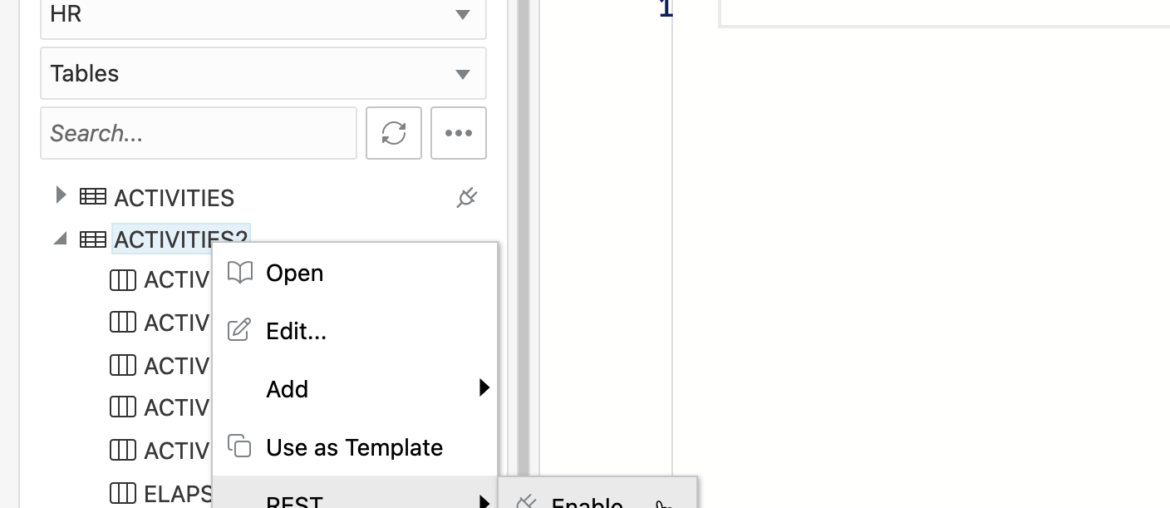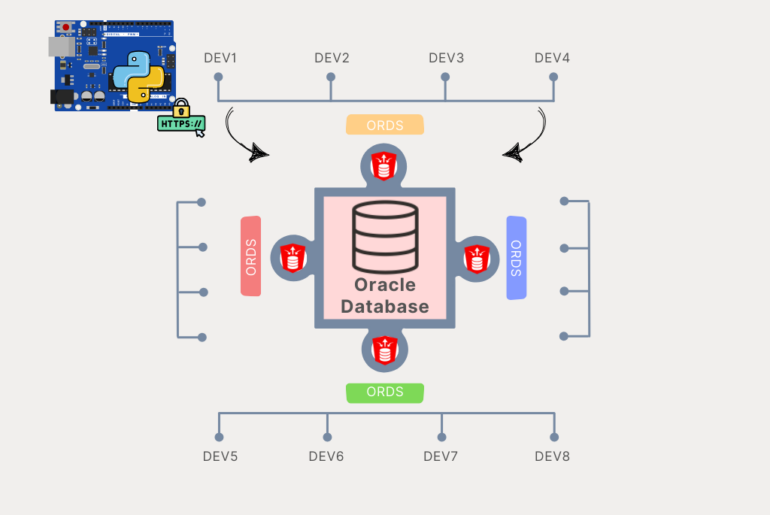I had the privilege of hosting a conversation with two of our APEX customers for our Dev Live event this past week. The topic? No and Low Code platforms.
I’ll post that video at the bottom of this post, but prepping for that event and the stories shared prompted a couple thoughts in my oddly shaped noggin:
- wow, my face wasn’t really meant for YouTube, esp HD
- APIs, REST or otherwise really have a big role to play in low and no code platforms
Those fancy drag-and-drop application design time solutions are only as powerful as the APIs they have access to, yes?
If you are trying to interact with your data, you will need APIs on said data. But just as important, you’re going to need APIs on your Business Processes.
In an Oracle Database these are often implemented via PL/SQL stored procedures (and sometimes triggers, ew).
ORDS provides ‘no-code’ APIs for data & biz logic
You have tables and views. You need a CRUD API to interact with those objects?
No problem!
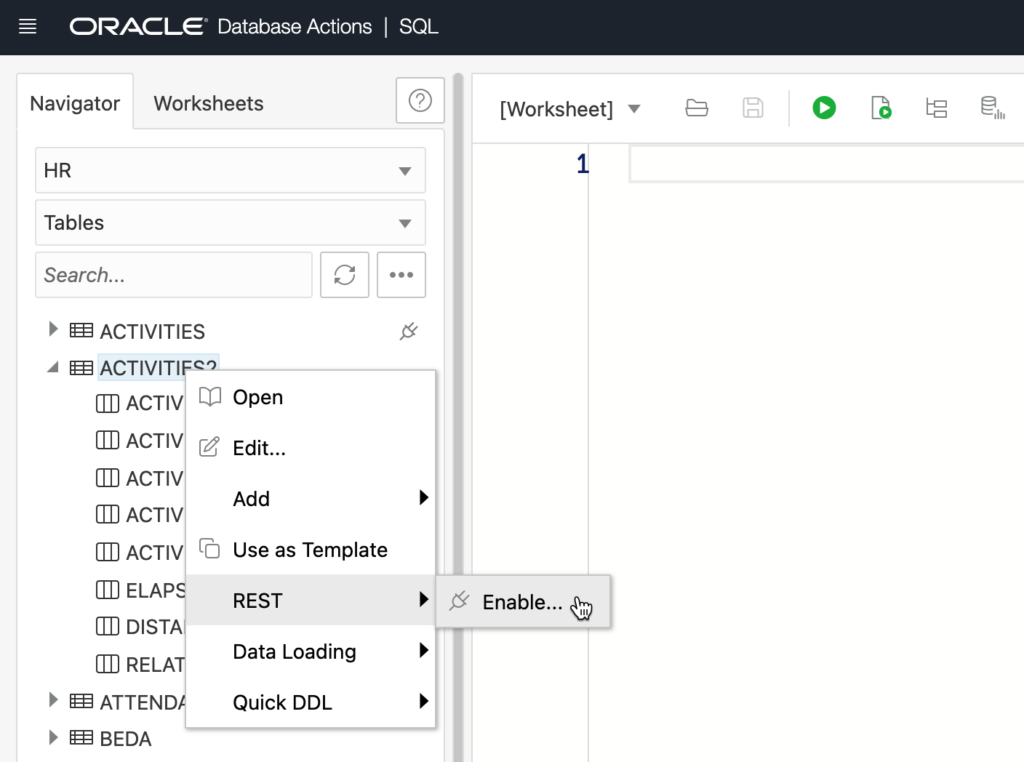
Sure, for a TABLE, I can make getting 1 or more rows, adding a new row, editing an existing row, or sadly removing a row as simple as a call out to HTTPS
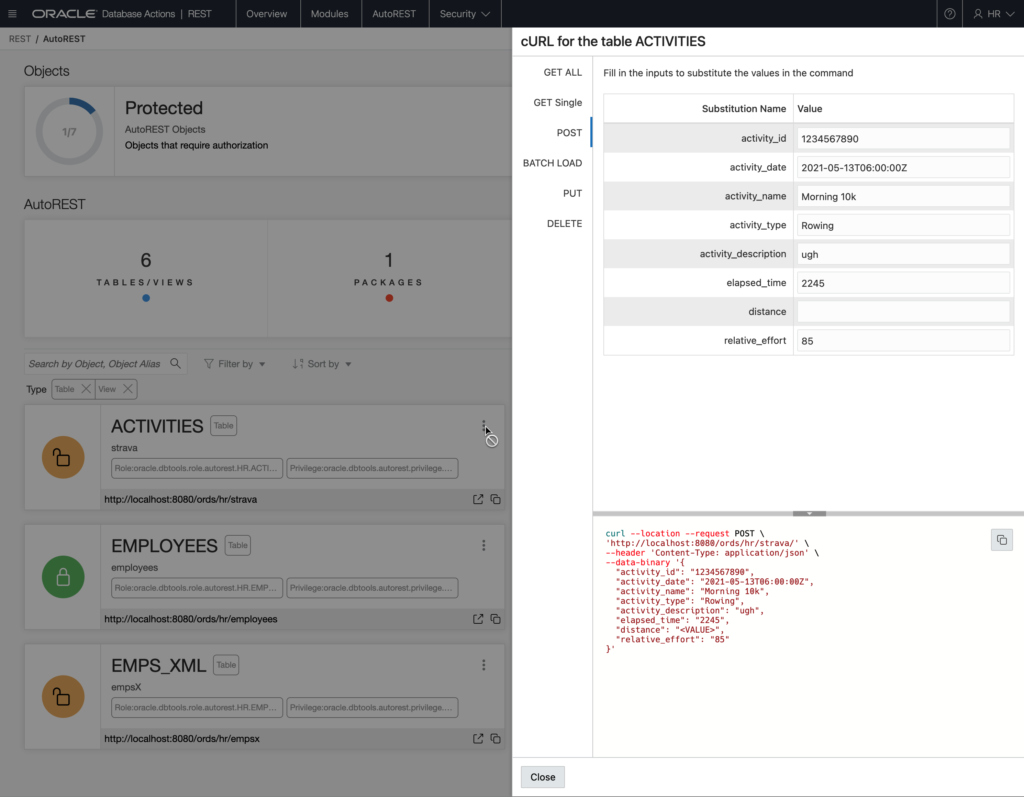
The beauty of HTTPS and REST APIs is that it makes your platform reachable from almost anywhere from almost anything.
Low Code is all about saving you time, effort, and lowering the expertise required to quickly build and deliver useful features to your customers. HTTPS is ubiquitous and very well understood by most developers today.
Directly working with your data with CRUD APIs is useful, and often just fine, if not even appropriate. But in real world environments, you probably have existing BUSINESS rules and APIs in place for doing things like – ‘Adding a CUSTOMER.’
And the business process for ‘Adding a CUSTOMER’ is much more complex than inserting a row to the CUSTOMERS table.
In the Oracle domain, that’s often implemented with a PL/SQL API. There you can build in all of your business rules, validations, exceptions, etc. for handling this critical process. And since you’ve put your logic in the database – it’s co-located with your data, making it FAST. And EVERY application interfacing with the database has the exact same APIs available to them – no one needs to rewrite anything just because you are delivering a new mobile app with say, GO.
But wait, how do you get an Oracle connection to the database and get PL/SQL & SQL execution support from a GO app?
Quite simply, you just use those HTTPS APIs we’ve been talking about.
APIs for your PL/SQL
I was talking to a customer a few months ago. They had an old FORMS application ecosystem, built 20 or so years ago. Completely implemented in the database with PL/SQL. It was aging, hard to maintain. Most of those developers who had written the PL/SQL were no longer around.
They wanted to modernize their apps – New & shiny! What to do?
Well, what they they did was instruct ORDS to make all of those PL/SQL packages avaialable via HTTPS. A single-click operation basically that took those hundreds of thousands of lines of battle-tested PL/SQL and made available via HTTPS calls.
“The really cool thing about ORDS…the useful part is just having things work for you already, and not having to write any code.”
a federal research facility using ORDS & Oracle Database
And their database and data is SECURE – all protected by PING auth via their LDAP system, and beautifully rendered with their Angular.JS powered applications.
Again, why write MORE code, when all the code you need has already been written and you just need a way to easily access it?
Enable the PL/SQL code, whether that be an entire package or standalone procedure or function.
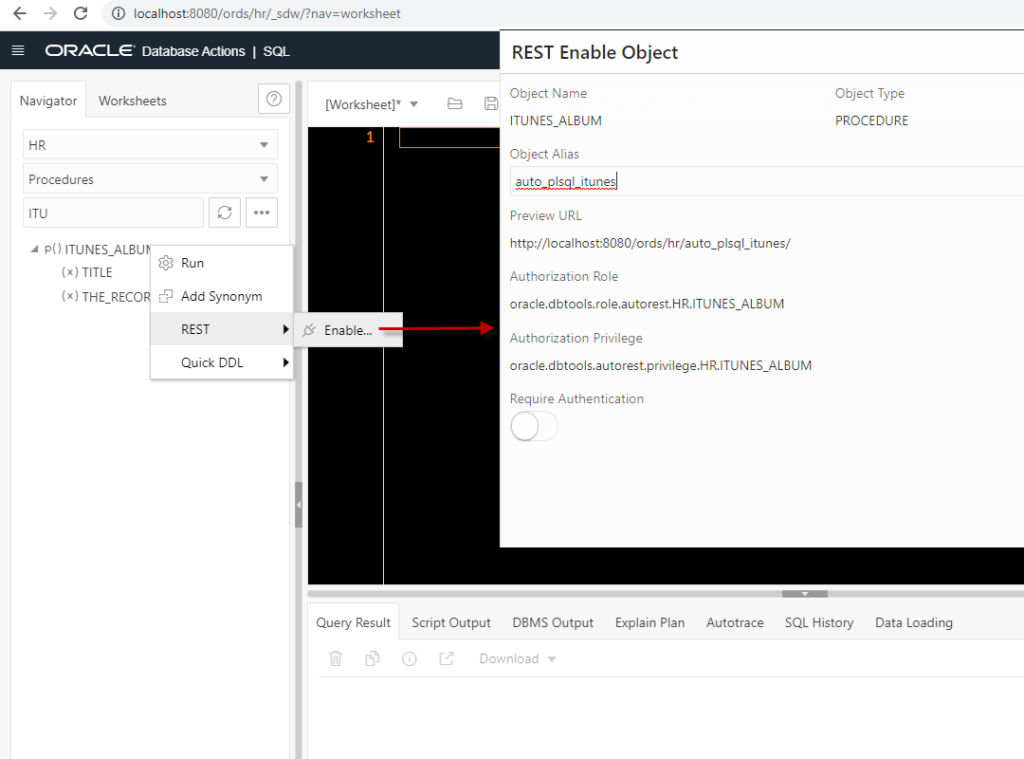
Then once the API is published, you can start exercising it from whatever platform you’re building.
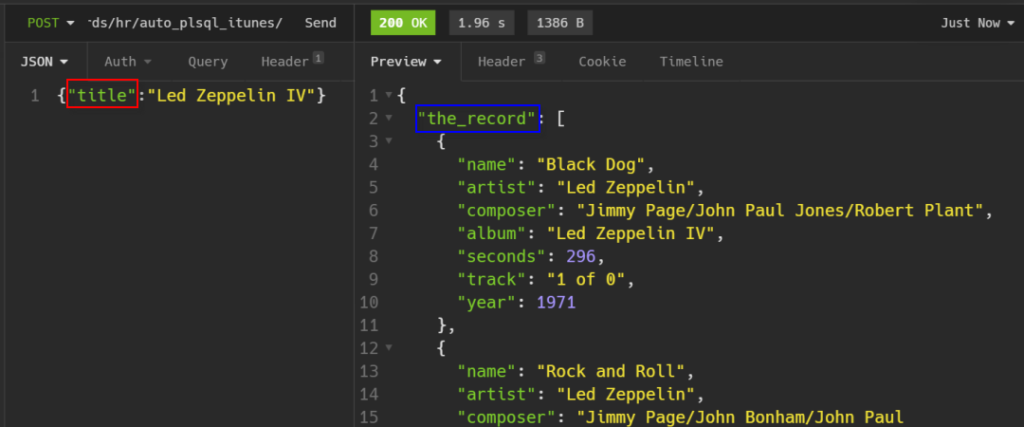
If your programs simply spit out HTML, those are easily accessed via ORDS and HTTPS as well, again, no additional code required.
Low Code Panel Discussion
Two of our Oracle APEX customers, Paul Hudson and Giovani Cani shared how they were quickly able to deliver new applications for farmers and the delivery infrastructure for those goods in the middle of a global pandemic using one of our most popular low-code technologies. Psst, it’s also all made possible with ORDS 🙂
APEX can also happily take advantage of any REST APIs you’ve published in your local or remotes Oracle Databases – no need to rely on DB_LINKS!
I highly recommend checking out the rest of our sessions from the Dev Live conference. You can access the entire playlist from here.
The first session is from Maria Colgan, and it’s a great round-up of all the power having a converged database brings to the modern application developer.
If you’re too busy to sit through that, and want the TL/DR version, I live-tweeted her session with highlights –
. @hiphopengineer1 welcoming everyone to our #OracleDevLive Event and introducing the one and only @SQLMaria !
— Jeff Smith 🍻 (@thatjeffsmith) May 4, 2021
Join us live here now!
https://t.co/sSVnxLajB6
click 'join the Americas event' pic.twitter.com/zQ4eM2WJRv


